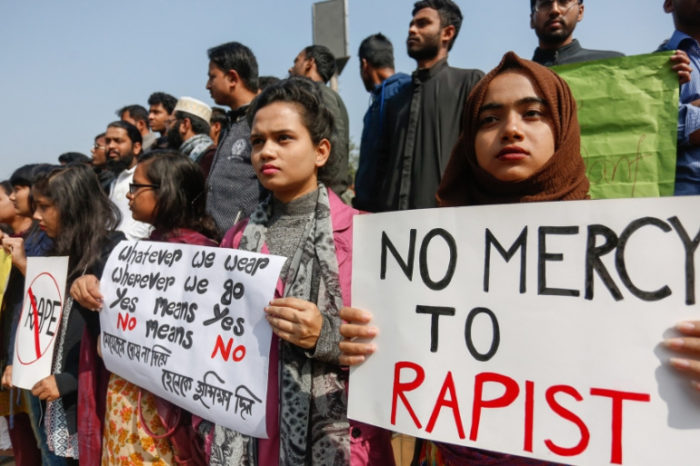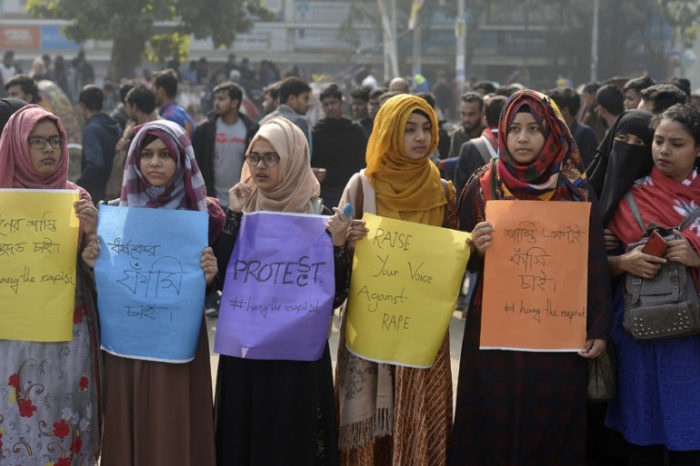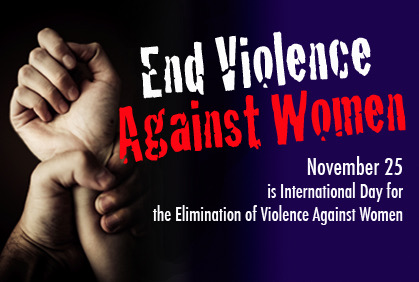By Shoda Khan
The first organized protests in the capital of Bangladesh arose when footage of men beating up, stripping, and sexually assaulting a woman went viral online. The video was shared many times on Facebook before it was taken down. One of the attackers in the video allegedly raped the female victim multiple times at gunpoint over the last year. These men don’t even deserve to be considered human after having performed the disgusting acts which shocked people on the internet.
The woman who was filmed wasn’t able to protest or to refuse repeated torture because her attackers threatened to release the video. Even though people have tried to remove the video completely from the internet, it is still continuously spreading. The victim has said, “My life is already ruined. I am now worried about my children, especially my daughter.” The brother of the victim now demands justice for the heinous crime committed. Eight men have been arrested, but because of a rising trend in the abuse and rape of women, protesters are now asking the government to take their nation’s sexual assault problem more seriously.
This is not the first time something like this has occurred. Since the spread of corona virus and subsequent mandatory lockdowns, the rate of assaults against women has increased with as many as four women raped every day. Such crimes against women are committed often in Bangladesh, but only a few victims receive any justice. Not everyone is brave enough to speak out about such abuse because society tears them apart, so many stay quiet and just silently carry the scars. Some just give up while the monsters who attacked them are still walking freely on the streets.
1,413 females are known to have been raped in Bangladesh in the year of 2019 alone. Of that number, 17 were killed after being raped, while 10 commited suicide. 907 women/girls were raped in just the first nine months of 2020. Because these crimes are so seldom punished by the courts, they occur more often. Under these circumstances, no woman is safe in the streets of Bangladesh. Even little girls have fallen victim to rapists, yet the government has yet to make the offenders face serious consequences. The perpetrators still roam the streets while their victims continue to suffer from mental and physical trauma.
People in Bangladesh are usually scared to talk about these situations because women are repeatedly shamed if it becomes generally known they have been raped. These victims are more demoralized once they speak up about it, because the police always delay rape complaints, Court cases are usually long and drawn out, and female victims are interrogated by police and lawyers as if they don’t have any feelings. Then there is the larger society that looks down on on rape victims for as long as they live. This discourages the victims from pursuing justice, so the offenders never receive appropriate punishment.
This problem gets worse every day because the government has not been supporting these women/girls. There is no witness protection, the victims are not supported emotionally or economically. If someone wants to testify about a crime that they have witnessed they could be risking their lives, which is why so few people ever speak up.
Ironically, the World Economic Forum this year declared Bangladesh to be a perfect example of female empowerment, which is hard to believe after looking at the way that these women/girls are being treated. Perhaps women’s political empowerment seems to have increased because the country is led by a woman. However, apart from this example of political empowerment, Bangladesh failed to meet other criteria. There is no reason to think that gender inequality has lessened in Bangladesh just by looking at these numbers. On the contrary it appears to have become worse.
It breaks my heart to say that such a beautiful country fails to support these strong and amazing women and make them feel like they belong. The offenders see them as nothing more than objects of pleasure. Society sees them as a damaged or dirty thing. But they all fail to realize that these women are people with feelings, that they also have dreams and ambitions. They are not less than anyone, they are just like everyone else and they should be treated equally and with respect.
Protesters called for the death penalty after the recent high profile cases of assault. In response, Bangladesh introduced the death penalty for rape cases. Recently, the cabinet secretary confirmed that the death penalty has been approved, and will be passed. Going forward, anyone convicted of rape can be punished with the death penalty. This death penalty amendment could be seen as a prevention bill for the supression of women and children.
Even though the pain rapists have caused could never be taken away, seeing these monsters punished may satisfy the victims and their families to some extent. This should be a declaration to any who commit such crimes or even think about doing so, that they will face severe consequences.


